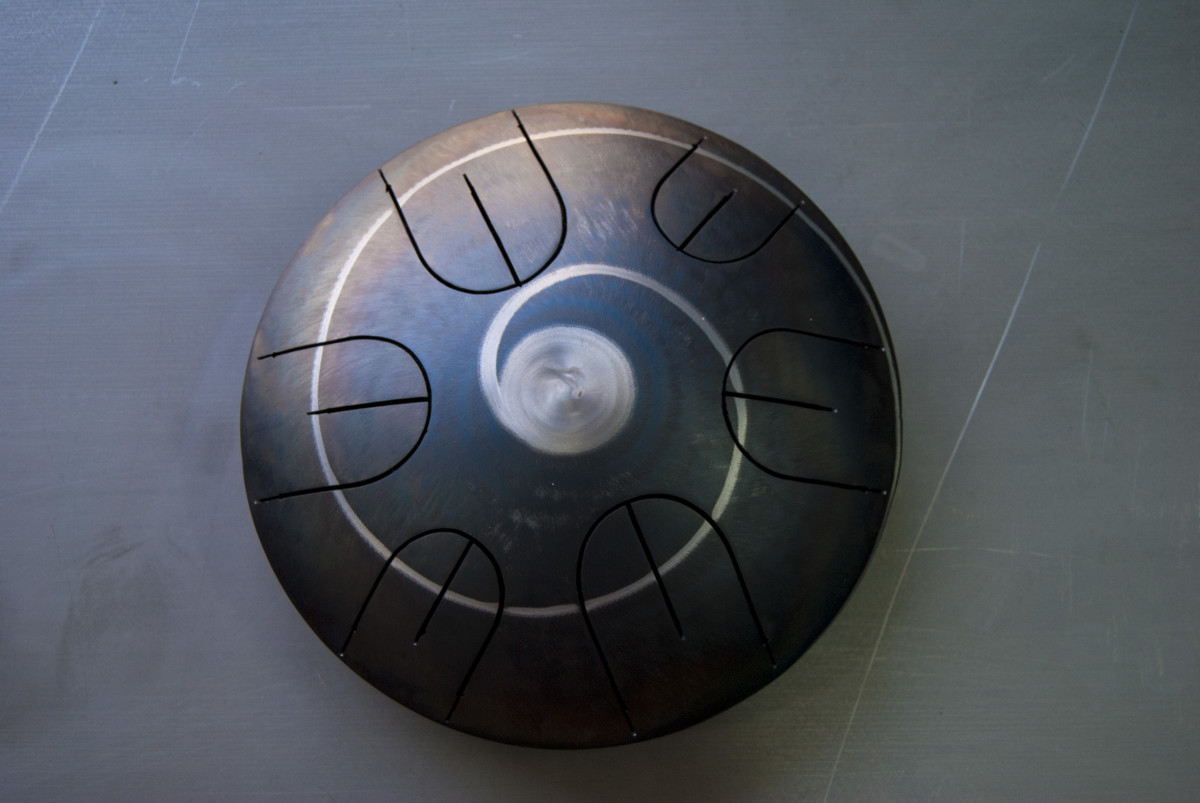I knew I needed a steel tongue drum the instant I heard one.
I've always enjoyed delicate bell sounds, and I've always had an interest in complex beats, mostly electronic for sure, but beats nonetheless. 10 years ago I released cats don't cry, a mini album made in a weekend. I still regard it as one of my best works ever. It's crude, poorly structured, badly produced, but it has a fragile, melancholic tone, a special atmosphere I never quite managed to reach again.
Don't get me wrong, it's not nostalgia I'm talking about. 10 years ago, I was a mess, and it's not a period of my life I'm especially eager to revisit. But back then, I found an ephemeral way of blending emotions, of expressing them, some kind of raw artistic freedom, that I've always wanted to explore more deeply. And for some reason I can feel but hardly explain, it has to be through drones and faint metallic sounds.
During the past two weeks, since I unexpectedly discovered them during a casual family activity, I did a lot of research on steel tongue drums and handpans. I read about their relatively short history, about people who make them and play them, watched many videos, listened to many albums. It's probably the first time I listen to so much music since I discovered doom metal, ages ago.
After a bit of web browsing, my first idea was to order a custom drum designed by myself, with my personal sigil, geometric patterns, a minimalistic color scheme and silver etchings. It took me a few days to find a drum maker that would do that within my limited budget. It was really exciting at first, but after more research, and some interesting discussions with Nicola Pisanti from Merveilles Town, who made me think about various technical aspects I had ignored, things got both clearer and more confusing.
Maybe a custom 12 notes tank drums made by a random maker found on Etsy wasn't such a good idea after all, even if this person had a great reputation, seemed good at their craft and was eager to answer my questions. Maybe I should look for something that would sound really good instead of something that I'd like to look at because I designed it.
Most steel tongue drums that seemed to have a great sound were either out of budget or too plain for my taste. HAPI drums, for example, sound really nice, but I just can't stand the awful logo slapped in the middle of the instrument, not to mention the nondescript colors and shapes. The Beat Root and Zenko drums were tempting, but too expensive. And don't even get me started on actual handpans.
Italian maker Rammerdrum was one of the first I stumbled upon, but I dismissed them quickly because at first their instruments seemed both too simple and too costly. Only 6 notes for the tiny 9" disco armonico 2g, really? And the bigger ones cost more than 500 euros? No way. But a few days ago I took a closer look, watched some of their videos, again and again, and... It became obvious the man had a lot of experience and a real passion for his craft, and was not only an expert artisan, but also an accomplished musician.
And his instruments, well... Their design didn't catch my eye the first time. But I kept coming back to the website from time to time, and I started to notice the timeless elegance of their tarnished look. Something like mysterious artifacts freshly dug out a forgotten layer of ancient history. Something that finally clicked.
So I ordered a 9" harmonic disc, the only I could afford, with a pair of beaters and a rubber ring stand.

